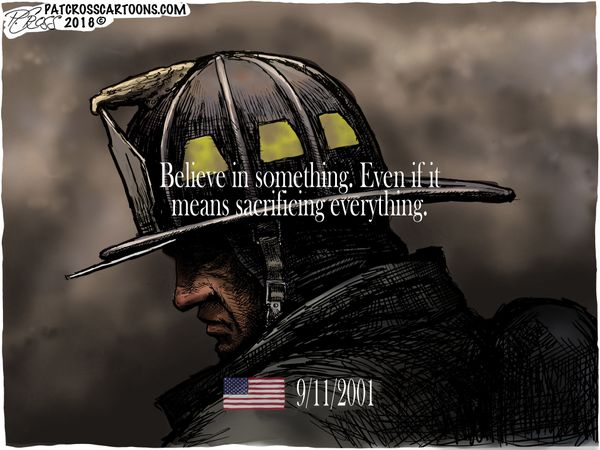Seventeen years ago, 19 terrorists hijacked four planes and used them to attack the United States. Almost 3,000 people were murdered. It was the deadliest terrorist attack in U.S. history.
Following that tragic day, the U.S. dramatically changed the way it approached terrorism. New government agencies and departments were created, like the Department of Homeland Security and the National Counterterrorism Center. Existing departments took on new or expanded responsibilities, such as the FBI’s National Security Branch.
Every American was made aware of the evil of Islamist terrorism and the harm its adherents wished upon the United States. The U.S. undertook new efforts to stop terrorism, from public security measures such as the Transportation Security Administration to intelligence programs such as those created by Section 702 of the Foreign Intelligence Surveillance Act.
Yet, as we moved to increase our security, terrorists were thinking up new ways to attack our way of life. Since that dark day 17 years ago, the U.S. homeland has faced 104 Islamist terror plots or attacks. Initially, the main target was military facilities and uniformed personnel. But over time, the terrorists shifted their targets toward mass public gatherings.
Initially it was al-Qaeda that radicalized and recruited terrorists, but by 2014, terrorists were almost entirely inspired by the Islamic State. The most active period of terrorist activity was 2015-2016, but with the defeat of the so-called caliphate, the number of terror plots dramatically declined, from 17 plots and attacks in 2015 to only three so far in 2018.
In light of all these changes, I still get asked, “Is America safer today than in 2001?” I always answer in the affirmative: There is no question we are safer today. Our progress has been uneven, threats to America have waxed and waned, and the world overall has grown less stable. But the U.S. counterterrorism enterprise is leaps and bounds ahead of where it once was.This system will not stop all terrorism—no system is or ever will be perfect—but it has stopped 87 out of 104 Islamist terror plots and made it much harder for terrorists to carry out large, complex attacks.
But even as terrorism appears to recede, we cannot rest on our laurels. There are still lessons to be learned, improvements to made, and efforts that must be redoubled. We learned the hard way with al-Qaeda and ISIS that when given room, Islamist terrorism can spread across the world and ultimately attack us here at home.
And so the U.S. must continue to prevent terrorists from establishing safe havens abroad. We should improve our aviation security by looking to other countries and the private sector for lessons and greater efficiency. We must continue to stress the importance of lawful intelligence programs that help the U.S. stop terrorists before they strike. Congress should reform its oversight of the Department of Homeland Security so that our security officials get clear guidance from Congress that lets them spend more time keeping America safe.
There are many things the U.S. can and should do to make the homeland safer. On this 17th anniversary of 9/11, we should remember the fallen—and through our policies, make sure such a horrific attack never happens again.
[italics and colored emphasis mine]
David Inserra specializes in cyber and homeland security policy, including protection of critical infrastructure, as policy analyst in The Heritage Foundation’s Allison Center for Foreign Policy Studies. Read his research.
Praying Through the Open Doors World Watch List for persecuted believers:To learn more, please go to -https://www.opendoorsusa.org/take-action/pray/monthly-prayer-calendar/
September 11 | IRAQ - Please pray for assurance and security for the many Iraqi Christian families who have been forced to relocate from their homes due to ISIS and war. Most have moved once while others have been displaced three or four times.
*Names changed to protect identities





I was so young when 9/11 happened and the US hasn't been the same ever since. I'm glad that the federal government quickly mounted a defense for the nation and that God has provided protection from further attacks like that of 9/11. It is dark events like these that inspire us to set aside differences and just love one another. I'm thankful for this article's reminder to never forget.
ReplyDelete-herb